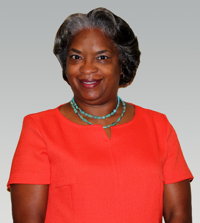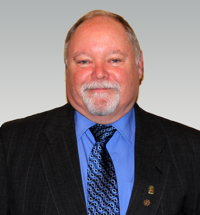QEP FAQ & Team 2015-2020
What is a QEP (Quality Enhancement Plan)?
- The QEP is a vehicle by which institutions can increase their overall quality and effectiveness by focusing on one issue that can improve student learning.
- The QEP is a transformative campus process that is anchored in student learning and enhancing the climate for student learning.
- The QEP is grounded in the commitment of SACSCOC to improve quality and promote student learning.
(Source: Silver, Joseph H. The Anatomy of the QEP, SACS-COC Annual Meeting, December 2007.)
Why does LSCO need a QEP?
Every ten years Lamar State College Orange is reaccredited by the Southern Association of Colleges and Schools Commission on Colleges (SACSCOC). SACSCOC evaluates all degree-granting higher education institutions in the Southern states to ensure they are meeting the highest educational standards. A college's accreditation assures that the college maintains its quality and that its credits will transfer to other accredited colleges and universities. Accreditation also means that LSCO is eligible to receive state funding and to participate in federal financial aid (Title IV) programs.
Midway between each decennial review, colleges must prepare and submit a Fifth-Year Interim Report to maintain accreditation.
LSCO's last decennial SACSCOC evaluation occurred in 2014. As part of the reaffirmation of accreditation, LSCO was required to develop its own QEP outlining a five-year program, to be implemented from 2014-2019. The results of the plan are reported as the QEP Impact Report, and is submitted as Part V of the Fifth-Year Interim Report.
Process: Exploring for Topics
In order to identify a topic for the QEP, the topic identification team first sent requests to all LSCO students, faculty staff, and alumni, as well as advisory board members for technical programs, local business and industry partners, dual credit partners, civic leaders, and Regents, asking for ideas about ways in which the college could enhance student learning, improve the learning environment, or promote student success in and after college, receiving over 80 suggestions.
Next, LSCO faculty formed three task forces which organized a total of 12 focus groups comprised of students, faculty, staff, dual credit partners, and representatives of all other LSCO constituents. These groups met, discussed, enjoyed refreshments, and, after some spirited discussions, completed surveys asking the members of each focus group to identify and rank their five favorite topics.
From the results of the focus group surveys, the topic identification team selected the three most popular topics and called for campus champions to assemble student/faculty/staff teams to compete and promote their choices in a campus-wide campaign. Using emails, posters, fliers, social media outlets, and on-the-lawn rallies, the teams stumped for their choices, and after a campus-wide vote in which turnout was gratifyingly robust, the winner was announced.
QEP Steering Committees:
- Topic Identification Committee
- James Ellis
- Randy Ford
- Andrew Preslar
- Literature Review Committee
- Ni Song (Chair)
- Ms. Dorraine Babcock
- Mr. Hunter Keeney
- Ms. Audrey Kapranos
- Ms. Elizabeth Pressler
- Design Committee
- Michael Rather Jr. (Chair)
- Dr. Jerry Sanford
- Ms. Vicki Norville
- Ms. Mary Sizemore
- Ms. Sribhagyam Srinivasan
- Ms. Lisette Hodges
- Dr. Arlene Turkel
- Communication Committee
- Brianne Moreau (Chair)
- Cindy Wyles
- Jennifer Petitjean
Topic statement, and the QEP's official name:
LSCO’s QEP focuses on improving critical and analytical reading skills through implementation of interdisciplinary instructional techniques. It's title was RISE: Reading Is Simply Everything.
Approval of the QEP, and Implementation:
Following the visit from the SACSCOC Reaffirmation of Accreditation On-site Review Committee, the focus of the QEP was tightened and the implementation limited to a specific cohort: persons declaring Pre-Licensed Vocational Nursing as a major.
Goals, Outcomes, and Assessment Measures
The following goals, student learning outcomes, and measures and means of assessment were subsequently approved by the Southern Association of Colleges and Schools Commission on Colleges and guided the implementation of the LSCO QEP from January 2015 until its conclusion in May 2020.
Goals, Student Learning Outcomes, and Assessment Measures
| Overarching Student Success Goals | Measures |
|---|---|
| 1. Entry into the LVN program | TEAS test |
| 2. LVN Licensure / RN Licensure | NCLEX® PN, NCLEX® RN |
| Goals (2) | Measures |
|---|---|
| 1. 70% of students receiving a minimum designated amount of enhanced instruction through the plan will read at college level, grade thirteen (13) |
|
| 2. 70% of students receiving a minimum designated amount of enhanced instruction through the plan will demonstrate improved reading skills. |
|
| Student Learning Outcomes (4) | Measures |
|---|---|
| 1. After completing the course of study for the Pre-LVN series of courses, students will read and comprehend college-level materials for a variety of purposes. |
|
| 2. After completing the course of study for the Pre-LVN series of courses, students will select and use reading strategies appropriate to content and purpose. | MARSI Post-instructional Assessment: Global Strategies Score Mean |
| 3. After completing the course of study for the Pre-LVN series of courses, students will monitor the effectiveness of their own comprehension strategies and adjust them as needed. | MARSI Overall Score Mean |
| 4. After completing the course of study for the Pre-LVN series of courses, students will increase the proficiency of comprehension, fluency, and critical and analytical reading skills in college level texts and materials |
|
RISE Team
The following persons served on the RISE team from its inception in Spring 2015 until its resolution in Summer 2020. The team members' dedication to student success and their selfless generosity with their time, effort, and expertise made the plan come to life for their students.
RISE Curriculum and Instruction Specialist /RISE Instructor
With 50 years of classroom teaching experience and certification as a Master Reading Teacher, Ms. Babcock was the perfect person to design and implement the RISE training program for compacting curriculum and embedding reading enhancement instruction in courses across the curriculum.

RISE Data Analyst / RISE Instructor
Mr. Owens served the RISE team throughout the project’s implementation, managing and bringing meaningful order to results from 3,293 assessments involving 21,553 individual assessment records.

University of Southwestern Louisiana @ Lafayette
Associate Professor / Dean of Academic Studies / Vice President of Academic Affairs
Dr. Whitehead provided guidance helping the plan’s authors navigate the accreditation requirements and secure SCACSOC approval at the outset of implementation.

LSCO Director of Institutional Research and Effectiveness
Dr. Keeney’s insights into assessment and research methodologies and data management assured that the conclusions reached by the data analyst were derived through valid processes using verifiable data.

Texas Chiropractic College @ Pasadena - SACSCOC Reviewer / RISE Instructor
Dr. Sanford’s leadership derives from his breadth of experience, ranging from owning and operating a clinical health care practice to serving as LSCO’s Director of Institutional Effectiveness, helping him guide the team in adapting to maintain the plan’s protocols and timetable despite natural disaster and pandemic during implementation.

Lamar University - RISE Instructor
Ms. Hodges grounding in the theory and practice of psychology helped the RISE team interpret, understand, and effectively respond to student behaviors and motivations related to assessment at pivotal points during the plan’s implementation.

University of Texas Medical Branch @ Galveston - Director of Vocational Nursing / RISE Instructor
Ms. LeBlanc’s leadership and teaching skill in the Vocational Nursing Program served as a model for emulation that led to the training, course redesign, and full implementation of the RISE paradigm in the Vocational Nursing Program and later in the Registered Nursing program, extending the plan’s beneficial influence far beyond the extent envisioned in the initiative’s design and approval phases.

Texas A & M University - QEP Design Director / RISE Instructor
Dr. McClure’s incisive analytical mind and dogged work ethic made him LSCO’s first and best choice to lead the team assembled to design and develop the RISE initiative, and the respect and esteem he has earned from his colleagues helped to establish the plan’s credibility by association in its initial phase of implementation.

University of Cincinnati - RISE Instructor
Dr. Song’s exploration of active learning and reading enhancement in college STEM education and her work in Supplemental Education contributed theoretical pedagogy and practical application strategies to the design and deployment of the RISE initiative.

Sam Houston State University - Directory of Math and Science / Associate Dean of Academic Studies / Dean of Academic Studies
Dr. Crockett’s energy, enthusiasm, and total commitment to promoting and fostering the success of underprepared and otherwise disadvantaged students and her research in the engagement/persistence dynamic aligned closely with and reinforced the RISE andragogical model.

Stephen F. Austin State University - RISE Instructor
A prominent consulting Licensed Professional Counselor and popular instructor, Mr. Moreau contributed his expertise to the interpretation of the assessment paradigm and volunteered his classes to serve as control groups for assessing student reading performance and metacognitive awareness in EDUC 1300 RISE cohort classes and Pre-LVN support courses.

Lamar University - RISE Director
Mr. Preslar contributed to the success of the LSCO QEP by assembling and supporting the efforts of the RISE team in their implementation of the initiative.
Thank you for your exemplary service to our students and our school!
